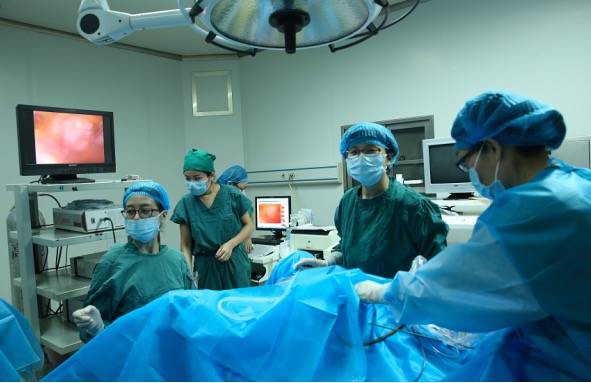Treatment for Fallopian Tube Blockage
Fallopian tube blockage is a common reproductive issue that significantly affects a woman’s fertility. It hinders the union of the egg and sperm, leading to infertility. There are various methods to treat fallopian tube blockage, including medication, surgical intervention, and assisted reproductive technologies. Here are detailed treatment options.
Medication Treatment
Medication treatment is typically used for mild fallopian tube issues or as preparation before surgery. Common medication treatments include:
Antibiotics: If the blockage is due to an infection, such as chronic pelvic inflammatory disease, antibiotics can help clear the infection, reduce inflammation, and improve the patency of the fallopian tubes.
Anti-inflammatory drugs: Used to relieve inflammation and symptoms, but limited efficacy for fundamental blockage issues.
Surgical Treatment
For severe fallopian tube blockages, surgical intervention may be necessary. Surgical treatment can be achieved through the following methods:
Laparoscopic surgery: This minimally invasive surgery involves inserting a laparoscope and other instruments through small abdominal incisions to directly observe and address fallopian tube issues. Common surgical procedures include:
Tubal Reanastomosis: Reconnects the blocked ends of the fallopian tubes to restore patency.
Balloon dilation: Uses a balloon catheter to dilate the blocked section of the fallopian tube, relieving the narrowing.
Laser therapy: Removes scars or adhesions inside the fallopian tube using lasers to improve patency.
Open surgery: If the situation is complex or laparoscopic surgery is not resolving the issue, traditional open surgery may be necessary. This surgery is more invasive but allows for broader treatment and repair.
Assisted Reproductive Technologies
For women who cannot fully resolve the issue through surgery, Assisted Reproductive Technologies (ART) are an effective alternative. Common ART methods include:
In vitro fertilization (IVF): IVF bypasses fallopian tube issues by achieving pregnancy through in vitro fertilization and embryo transfer. IVF is suitable for patients who cannot restore fallopian tube patency or have severe fallopian tube damage.
Embryo transfer: During the IVF process, embryos are directly implanted into the uterus without passing through the fallopian tubes, avoiding the impact of fallopian tube blockage on pregnancy.
Lifestyle Adjustments
Adjusting lifestyle during treatment can help improve overall health and fertility. Recommendations include:
Maintaining a healthy weight: Being overweight or obese may exacerbate fertility issues, so maintaining an appropriate weight can help improve fertility.
Healthy diet and regular exercise: A balanced diet and regular exercise help maintain the health of the reproductive system and enhance overall body function.
Jinan Honghui Hospital is located north of the beautiful Hero Mountain Chixia Square, known for its integration of traditional Chinese and Western medicine. The hospital has an elegant environment, reasonable layout, complete specialties, advanced equipment, and strong technical expertise, serving as a high-tech modern comprehensive hospital integrating medical care, research, prevention, relief, and education.
Jinan Honghui Hospital adheres to the service tenet of “serving the people, benefiting society,” embodying the international Red Cross spirit of “humanity, philanthropy, dedication,” and embracing the philosophy of “first-class technology, first-class service, first-class environment, first-class image, first-class management.”
Jinan Honghui Hospital features the integration of traditional Chinese and Western medicine, boasting an elegant environment, reasonable layout, complete specialties, advanced equipment, and strong technical expertise. The hospital integrates medical care, research, prevention, relief, and education, embodying a high-tech modern comprehensive hospital.
With the aim of serving patients wholeheartedly and without profit orientation, Jinan Honghui Hospital actively engages in public welfare activities amidst low-profit operation, embodying the “parental heart of a doctor” to offer blessings to the surrounding patients with superb skills and first-class services.
Treatment for fallopian tube blockage should be selected based on specific circumstances. Medication treatment, surgical intervention, and assisted reproductive technologies each have their indications and effects, often requiring a comprehensive approach for the best treatment outcomes. Understanding the different treatment options and discussing them in detail with a professional physician can help formulate personalized treatment plans and improve the chances of successful pregnancy. If symptoms of fallopian tube blockage arise, seeking medical attention early and implementing appropriate treatment measures can maintain reproductive health and enhance quality of life.


